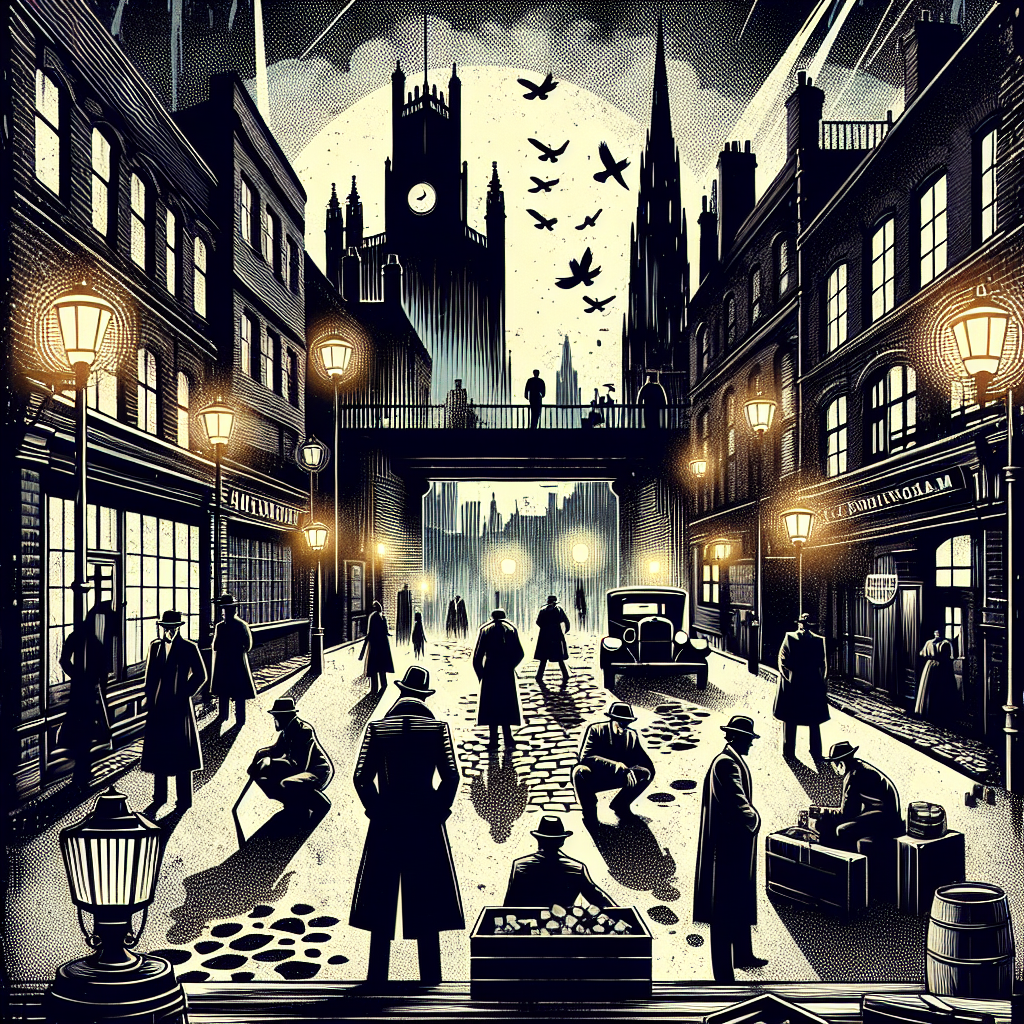Peaky Blinders: A Masterpiece of Modern Television
Introduction to a Cultural Phenomenon
Premiering in 2013, "Peaky Blinders" has entrenched itself as a quintessential piece of modern television. Created by Steven Knight, the British historical crime drama elegantly intertwines the raw grit of early 20th century Birmingham with the stylistic allure that has defined a new era of TV artistry. This series, which reached its finale in 2022 after six successful seasons, captures a significant niche by revitalizing period dramas with fresh narratives and intricate character dynamics. Its significance in television history lies in its ability to merge historical fiction with compelling storytelling, carving a unique identity that has impacted audiences globally.
Main Themes and Narrative Techniques
At the heart of "Peaky Blinders" is the exploration of power, ambition, and the socio-political landscape of post-World War I Britain. The series delves into the eponymous gang led by the enigmatic Thomas Shelby (Cillian Murphy), a character whose arc is one of complexity and depth. Thomas’s journey from a war-torn, traumatized veteran to a calculating, ruthless, yet paradoxically principled leader forms the crux of the narrative, demonstrating how ambition can both elevate and corrupt.
Key themes include the struggle for control amidst chaos and the moral ambiguity enveloping crime and business. Another profound theme is the impact of trauma and war, evident in the PTSD experienced by various characters and its subsequent effect on their decisions and relationships. For instance, the frequent references to the war and its haunting presence in the characters’ lives are emblematically shown through Tommy’s hallucinations and flashbacks.
Narratively, the show’s strength lies in its non-linear storytelling, often interspersed with flashbacks and forward jumps that create a dynamic viewing experience. The use of symbolism and motifs, such as the recurring image of the black horse or the Birmingham fog, adds layers of meaning, enhancing the narrative depth.
Character Arcs and Development
The multitude of character arcs is central to the show’s allure. Thomas Shelby’s journey is nuanced, shaped by an internal battle between his inherent goodness and the darkness his world demands. His relationship with Grace Burgess (Annabelle Wallis), laden with betrayal and redemption, encapsulates the series’ trademark storytelling: one where love and treachery are inextricably linked.
Another key character, Polly Gray (Helen McCrory), represents the matriarchal strength and wisdom that counterbalances Tommy’s bullish leadership. Her transformation from a supportive but sidelined family figure to a powerful decision-maker showcases the show’s commitment to complex and empowering portrayals of women.
Arthur Shelby (Paul Anderson) provides a raw depiction of internal conflict as he navigates his position in the family and the business. His violent tendencies juxtapose his desperate need for redemption, highlighting the struggle between nature and nurture.
The show further enriches its tapestry with diverse supporting characters, each bringing unique perspectives that challenge and drive the narrative forward. Characters like Alfie Solomons (Tom Hardy) add unpredictability with their own brand of charm and menace, embodying the show’s theme of moral ambiguity.
Cultural, Social, and Historical Reflections
"Peaky Blinders" offers a reflective lens into the early 20th century—a time of economic hardship, political upheaval, and social transformation following World War I. It sheds light on the emergence of organized crime as a means of survival and power assertion in this tumultuous period. The portrayal of the Shelby family’s rise from modest beginnings to significant power parallels the ambition-fueled capitalist ethos prevalent in contemporary society.
Equally significant is the show’s handling of class disparity and the shifting social order in post-war Britain. The tension between the working class and the establishment is palpable and serves as an undercurrent throughout the series. The Peaky Blinders’ defiance against authoritative and economic oppression, symbolized by their confrontations with entities like the police and rival gangs, reflects a broader sentiment of resistance against systemic inequality.
In addition, "Peaky Blinders" subtly integrates discussions of race and gender, brought to the forefront by characters such as Ada Shelby (Sophie Rundle) and Jessie Eden (Charlie Murphy). The narrative weaves feminist nuances as it highlights the evolving roles of women during this era, suggesting parallels with ongoing gender equality conversations today.
Impact and Legacy
The visual and auditory allure of "Peaky Blinders" has left an indelible mark on popular culture. Remarkable for its atmospheric cinematography, the series skillfully employs color palettes and period-appropriate set designs to create its unmistakable aesthetic. The eclectic soundtrack, featuring modern artists like Nick Cave and Arctic Monkeys, bridges time periods, crafting an anachronistic, modern edge that has redefined period drama music trends.
The show’s impact on fashion is notable, with its distinctive style influencing modern apparel, from the signature baker boy caps to tailored three-piece suits, cementing itself as a trendsetter in men’s fashion.
In terms of influence on television, "Peaky Blinders" has set a benchmark for blending historical accuracy with fictional storytelling. Its success has emboldened creators and networks to invest in similarly complex, high-stakes period dramas.
Reflective Takeaways
As viewers reflect on "Peaky Blinders," several questions arise: How do individuals navigate the fine line between ambition and morality? In what ways does the series provide commentary on contemporary issues through its historical narrative? How does it challenge conventional representations of power dynamics, social structures, and resilience?
Ultimately, the show invites us to reassess the cyclical nature of history and its impact on the present. As "Peaky Blinders" continues to capture the imagination of viewers worldwide, it stands as a testament to the enduring power of storytelling, reminding us that the past, much like its characters, is never truly behind us, but rather a foundation for understanding and shaping the future.
Got more questions? Our personalized TV Explorer AI assistant is here to help. Click here to start a conversation!
[Advertisement]
Want to see the deeper significance behind your favorite TV shows? Discover how ANY show relates to positive biblical principles with TV and Scripture GPT from BGodInspired.com. Click here to gain insights that go beyond the screen!
[Advertisement]

